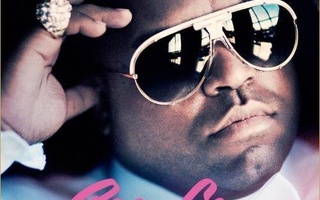New York has a surprisingly complicated relationship with soul music. Strangely enough for a city that has consistently been at the forefront of all aspects of African-American culture—from the Harlem Renaissance through jazz and the birth of hip-hop to the present day—it never produced a home-grown soul scene. For a brief period in the ’60s it passed its cultural mantle to several cities that frankly seem like backwaters when compared to the Big Apple: places like Detroit, Philadelphia, Memphis, and Muscle Shoals. In fact, I would argue that the city played an active role in killing off soul music, as disco—a movement that exploded out of downtown Manhattan in the mid ’70s—replaced soul and funk as the main form of dance music. However, hip-hop, the other great New York cultural invention of the ’70s, has done more to preserve and popularize soul than anything else.
In the early ’70s Leroy Burgess had a big problem. His Harlem-based soul band Black Ivory was struggling to stay above water in a town without a big soul market and on a label that didn’t have the resources to promote its music beyond the East Coast. Even worse, as the years trundled along disco got bigger, DJs stopped spinning soul, and the clubs stopped hiring soul bands. Eventually, Burgess would jump ship and make a name for himself as a producer—working for artists like Rick James—and Black Ivory would slowly fall apart.
What they left behind was a body of work perfect for sampling in hip-hop. In fact, Black Ivory—largely due to the fact that their music is featured in songs by artists as wide-ranging as Lil B and Brand Nubian—reunited and released an album called “Continuum” in 2011. This story is not unique to this band. Artists as well respected as Kool and the Gang and James Brown all were introduced to a new generation by hip-hop producers. What these MCs and DJs discovered was that the sound of ’70s soul and funk was a perfect foundation on which to build their records. They would sample the catchiest part of the song and use these segments to construct beats for some of hip-hop’s classic tracks.
I only discovered Black Ivory recently, and that was when I found out the tearworm that makes the song “Criminology,” by Raekwon, so nasty is actually from the intro to “I Keep Asking You Questions,” a little-known track buried towards the back of Black Ivory’s debut album. The song starts with a lock-step descending horn line backed by strings before getting into a guitar-based shuffle. Burgess sings “I keep asking you questions,” only to answer in an impossibly high falsetto, “you keeping telling lies.” Almost as a response to his frustration, the band rips into one monster of a groove, with the guitar hammering out chords over a driving drum beat. On top of all this, the horns blast out an infectious five-note line in a sort of repetitive motion, giving “I Keep Asking You Questions” a classic funk feel. It sounds like a Jackson 5 song might, if the girl Michael sings for in “I Want You Back” led him along for years before leaving.
Black Ivory should have been New York’s answer to Sly and the Family Stone—they certainly were good enough—but due to a combination of poor timing and the limits of a small label they never got the audience they deserved. However, great music is timeless, and even though they weren’t appreciated in their day, Black Ivory found a new audience in a bunch of hip-hop producers with an ear for a great groove. Thank god for those producers, because if it weren’t for them, soul freaks who weren’t around to experience the music firsthand—such as myself—would never have been able to explore the artists that the industry left behind.
—Columnist Noah S. Guiney can be reached at nguiney@college.harvard.edu.
Read more in Arts
"That Thing": Light and Funny

















